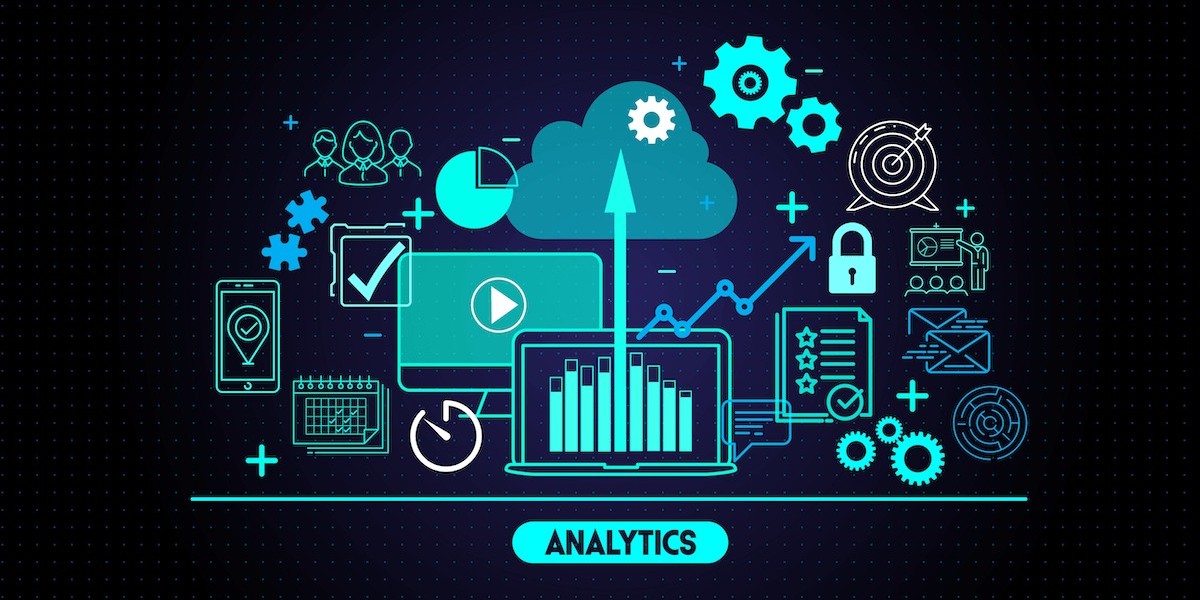In today's digital landscape, businesses generate massive amounts of data every second. From customer interactions and transaction records to social media engagement and operational metrics, this information represents a goldmine of insights waiting to be discovered. However, the challenge lies not in collecting data, but in effectively analyzing and interpreting it to drive meaningful business decisions. This is where comprehensive analytics education becomes invaluable, and enrolling in a Data Analytics Course in Pune can provide the foundational knowledge needed to navigate the complex world of big data.
Understanding the Foundation of Big Data Analytics
Analytics courses begin by establishing a solid understanding of what big data truly means in a business context. Unlike traditional datasets, big data is characterized by the famous "three Vs": volume, velocity, and variety. Volume refers to the sheer amount of data organizations collect daily, velocity describes the speed at which new data is generated and processed, and variety encompasses the different types of data sources, from structured databases to unstructured social media posts and sensor readings.
Through structured learning programs, students discover how these characteristics create both opportunities and challenges for modern businesses. A comprehensive Data Analytics Course in Pune typically covers these fundamental concepts while providing hands-on experience with real-world datasets, helping learners appreciate the scale and complexity of contemporary data environments.
Core Technical Skills for Big Data Management
One of the primary benefits of formal analytics education is the development of essential technical competencies. Students learn to work with various programming languages specifically designed for data manipulation and analysis, including Python, R, and SQL. These tools form the backbone of any successful big data initiative, enabling professionals to extract, clean, transform, and analyze large datasets efficiently.
Analytics courses also introduce learners to specialized big data technologies such as Hadoop, Spark, and NoSQL databases. These platforms are specifically designed to handle the scale and complexity of modern business data, offering distributed processing capabilities that traditional systems cannot match. Understanding how to leverage these technologies is crucial for anyone looking to make a meaningful impact in the field of business analytics.
Statistical Methods and Mathematical Foundations
Beyond technical tools, analytics education emphasizes the importance of statistical literacy and mathematical reasoning. Students learn various statistical techniques, from basic descriptive statistics to advanced inferential methods, regression analysis, and hypothesis testing. These skills are essential for drawing valid conclusions from data and avoiding common pitfalls such as correlation-causation confusion or sampling bias.
A quality Data Analytics Course in Pune ensures that learners understand not just how to apply statistical methods, but also when and why specific techniques are appropriate for different business scenarios. This theoretical foundation enables professionals to design robust analytical frameworks that generate reliable insights for strategic decision-making.
Data Visualization and Communication Strategies
Raw numbers and statistical outputs rarely tell compelling stories on their own. Analytics courses place significant emphasis on data visualization techniques and effective communication strategies. Students learn to create meaningful charts, graphs, and dashboards that transform complex analytical findings into accessible insights for diverse stakeholders, from technical teams to executive leadership.
Modern visualization tools such as Tableau, Power BI, and Python libraries like Matplotlib and Seaborn are typically covered in comprehensive programs. These platforms enable analysts to create interactive dashboards and dynamic reports that facilitate real-time monitoring of key business metrics and performance indicators.
Machine Learning Applications in Business
As businesses increasingly seek predictive capabilities, analytics courses have expanded to include machine learning fundamentals. Students explore various algorithms and techniques, including supervised learning methods like linear regression and decision trees, unsupervised learning approaches such as clustering and dimensionality reduction, and advanced topics like neural networks and deep learning.
Understanding machine learning applications helps business professionals identify opportunities for automation, prediction, and optimization within their organizations. Whether it's customer segmentation, demand forecasting, or fraud detection, these techniques can provide significant competitive advantages when properly implemented. A comprehensive Data Analytics Course in Pune typically includes practical projects that demonstrate these applications in real business scenarios.
Industry-Specific Applications and Use Cases
Different industries leverage big data analytics in unique ways, and quality educational programs explore these sector-specific applications. In retail, analytics drives personalized marketing campaigns, inventory optimization, and customer experience enhancement. Healthcare organizations use data analytics for patient outcome prediction, operational efficiency, and medical research advancement. Financial services rely on analytics for risk assessment, algorithmic trading, and regulatory compliance.
Manufacturing companies utilize predictive maintenance, quality control analytics, and supply chain optimization to improve operational efficiency. Understanding these diverse applications helps students recognize the versatility of analytical skills and identify opportunities within their chosen career paths.
Data Governance and Ethical Considerations
Modern analytics education also addresses critical issues surrounding data governance, privacy, and ethical use of information. Students learn about regulatory frameworks such as GDPR and CCPA, understanding how these regulations impact data collection, storage, and analysis practices. They explore concepts of data quality, lineage, and stewardship, which are essential for maintaining trustworthy analytical systems.
Ethical considerations around algorithmic bias, fairness, and transparency are increasingly important topics in contemporary Data Analytics Course in Pune curricula. As businesses rely more heavily on automated decision-making systems, professionals must understand how to identify and mitigate potential biases that could lead to unfair or discriminatory outcomes.
Project Management and Implementation Strategies
Successfully implementing big data initiatives requires more than technical expertise; it demands strong project management capabilities and change management skills. Analytics courses often include modules on project lifecycle management, stakeholder engagement, and organizational change processes. Students learn how to scope analytical projects effectively, manage timelines and resources, and communicate progress to various stakeholders.
Understanding the human elements of data-driven transformation is crucial for career success. Many analytical projects fail not due to technical limitations, but because of inadequate planning, poor stakeholder buy-in, or insufficient attention to organizational culture and readiness for change.
Building a Career in Analytics
For professionals considering a transition into analytics or seeking to advance their current capabilities, formal education provides structured pathways for skill development and career progression. A well-designed Data Analytics Course in Pune offers networking opportunities, mentorship access, and practical experience that can significantly accelerate professional growth.
The demand for skilled analytics professionals continues to grow across industries, with roles ranging from data analysts and business intelligence specialists to data scientists and analytics consultants. Understanding the various career paths and required competencies helps individuals make informed decisions about their professional development and specialization areas.
Conclusion
As businesses continue to recognize the strategic value of big data analytics, the demand for qualified professionals will only increase. Whether you're beginning your analytics journey or seeking to enhance existing capabilities, investing in quality education through a comprehensive Data Analytics Course in Pune represents a valuable step toward building a successful career in this dynamic and rapidly evolving field. The insights gained from such programs extend far beyond technical skills, encompassing the strategic thinking and business acumen necessary to translate data into actionable intelligence that drives organizational success.







